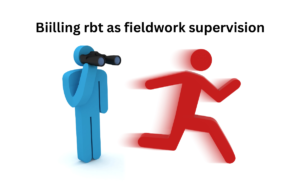Several key factors influence the pricing of your home, with location often being the most critical. The desirability of a neighborhood, proximity to amenities, schools and shopping centers, and even the safety of the area can significantly impact home value. Homes located in high-demand areas command higher prices due to limited availability and strong buyer interest.
The factor is the condition and age of the home. Newer homes or those that have been well-maintained appraise higher. Buyers are often willing to pay a premium for homes that are move-in ready, with updated systems and modern features, reducing the need for immediate repairs or renovations.
Market conditions also play a pivotal role. In a sellers market, where demand outstrips supply, home prices tend to rise, sometimes leading to bidding wars, in a buyer’s market, with more homes available than buyers, prices may stagnate or even decline as sellers compete to attract offers.
How does the location of your home affect its market value?
Location factors can also negatively impact value. Homes situated near busy roads, airports, or industrial areas may suffer from noise pollution, reduced privacy, and safety concerns, all of which can deter potential buyers. The crime rate in the area is another critical consideration, as higher crime rates reduce home prices. In essence, even a well-maintained and updated Pricing your home can see its value decrease if it’s located in a less desirable area.
Why is the size and condition of your home crucial in determining its price?
The size and condition of a home are critical factors in determining its price. Larger homes generally have higher market values due to the increased living space they offer, which is especially important in markets where square footage is at a premium, it is not just the size that matters, the layout and functionality of the space are equally important. Homes with well-designed, open floor plans and modern features tend to attract higher offers.
The condition of the home is another major influence. Buyers are looking for properties that are move-in ready, with no major repairs needed. Homes that have been well-maintained, with updated kitchens, bathrooms, and essential systems like plumbing and electrical, are more likely to sell at a higher price. Homes that require significant repairs or have outdated features may see their value reduced, as buyers factor in the cost of renovations into their offers
What role do recent sales of comparable properties play in pricing your home?
Recent sales of comparable properties, often referred to as “comps,” play a critical role in determining the price of a home. Comps provide a benchmark by showing what similar properties in the same area have recently sold for. This data helps sellers set a realistic price that aligns with the current market conditions, ensuring that the home is neither overpriced or underpriced. Comps are particularly useful in competitive markets, where accurate pricing can make the difference between a quick sale and a home that lingers on the market.
Real estate agents and appraisers heavily rely on comps to conduct a Comparative Market Analysis (CMA). By comparing your home to others of similar size, age, and condition that have recently sold, they can adjust for any differences and come up with a fair market value. This method ensures that the price reflects not only the homes intrinsic value but also the broader market trends and buyer expectations.
Using comps also helps in negotiating the final sale price. Buyers often use comps to justify their offers, while sellers can use them to defend their asking price, comps provide a data-driven approach to pricing, which helps to build confidence for both buyers and sellers in the transaction process.

How do market conditions impact the pricing of your home?
Market conditions significantly influence pricing your home, often dictating whether it is a sellers or buyer’s market. In a sellers market, where demand exceeds supply, home prices rise, and sellers may receive multiple offers, sometimes even above the asking price. This situation gives sellers more power to set higher prices, knowing that buyers are competing for a limited number of available properties.
In a buyers market, where there are more homes available than buyers, prices tend to drop. Sellers may have to lower their asking price to attract buyers, or offer additional incentives, covering closing costs or making repairs. The pace of the market also impacts pricing, homes in hot markets tend to sell quickly, while those in slower markets may stay on the market longer, which can lead to further price reductions.
Economic factors like interest rates, inflation, and employment levels also play a role. For example, lower interest rates can increase buyer purchasing power, driving up home prices, while higher rates might cool the market as borrowing becomes more expensive. Monitoring these conditions is crucial for both buyers and sellers to time their transactions optimally.
What is the importance of a professional home appraisal in setting the price?
A professional home appraisal is essential in setting the correct price for your home, as it provides an unbiased estimate of the property’s market value. Appraisers assess various factors, including the condition of the home, its location, the size and layout, and the value of comparable properties in the area. This process ensures that the price reflects the true worth of the property, which is crucial for both the seller and potential buyers.
For sellers, an appraisal can prevent overpricing, which might deter potential buyers and cause the property to linger on the market. It can also help avoid underpricing, ensuring that the seller receives fair market value. For buyers, an appraisal protects against overpaying, particularly if they are financing the purchase. Lenders require an appraisal before approving a mortgage, to ensure that the loan amount does not exceed the properties value.
A professional appraisal can serve as a powerful negotiating tool. If the appraisal comes in lower than the agreed-upon sale price, buyers might request a price reduction, or alternatively, it could confirm that the pricing is fair and support the sellers position. In either case, the appraisal adds an element of transparency and trust to the transaction
How can you strategically price your home to attract potential buyers?
Strategically pricing your home to attract potential buyers is a crucial aspect of ensuring a successful sale. One effective strategy is to price your home slightly below its market value. This tactic can generate increased interest and potentially lead to multiple offers, which can drive up the final sale price. By pricing your home 10% to 15% below the market value, you open up your property to a larger pool of buyers who may perceive it as a great deal, encouraging competition among buyers.
A key consideration is setting your price within the right “price bands” that buyers commonly search within online. For example, pricing your home at $299,900 instead of $300,000 ensures that it appears in searches set with a maximum limit of $300,000. This slight adjustment can increase the visibility of your listing and attract more potential buyers who might otherwise miss your property in their search results.
Timing your listing to align with seasonal market trends can also enhance your pricing strategy. Spring and early summer are the best times to list a home due to higher buyer activity during these months. It is important to consider local market dynamics, as the optimal time to sell can vary by region. In some areas, the fall market can be just as strong, making it crucial to understand your local real estate market before setting your price.
Why should you consider the timing of your home sale when setting a price?
The timing of your home sale is a critical factor that can significantly impact your pricing strategy and the overall success of the sale. Seasonal trends play a major role; for instance, listing your home in the spring or early summer coincides with higher buyer demand, which can support higher asking prices and quicker sales. Buyers are often more active during these months, particularly families looking to move before the new school year, making it a prime time to sell.
Selling during the winter months might require a different pricing approach. While there may be fewer buyers in the market, those who are looking during this time are often more serious and motivated, which can work in your favor if your home is priced competitively. In such cases, slightly adjusting the price to attract these motivated buyers can lead to a quicker sale.
Local market conditions also dictate the best timing for your sale. The specific trends in your area, when homes sell faster or at higher prices, allows you to align your listing strategy with these patterns. This knowledge helps you maximize your home’s value and minimize the time it spends on the market.

How can home improvements and staging affect your home’s price?
Home improvements and staging can have a substantial impact on the final sale price of your home. Strategic upgrades, modernizing the kitchen or bathroom, adding energy-efficient windows, or enhancing curb appeal, can significantly increase the perceived value of your home. Buyers are often willing to pay a premium for move-in-ready homes that require minimal additional investment, making these improvements a worthwhile consideration before listing your property.
Staging is another powerful tool that can help your home sell for more. Proper staging highlights the best features of your home, creates an inviting atmosphere, and helps potential buyers envision themselves living in the space. Even simple touches, like decluttering, adding fresh paint, and arranging furniture to maximize space and light, can make a significant difference in how your home is perceived and valued by buyers
What are common pricing mistakes homeowners make when selling their property?
One of the most frequent pricing mistakes homeowners make is overpricing their property. Sellers often set prices based on emotional attachment, renovation costs, or an unrealistic expectation of the market, leading to a higher price than the market can support. This can result in the property staying on the market for an extended period, which might eventually force the seller to reduce the price sometimes multiple times giving the impression that there is something wrong with the property. It is crucial to use a comparative market analysis (CMA) and consult with a real estate professional to set a competitive price from the start.
It is a mistake underpricing the home in hopes of sparking a bidding war. While this strategy can sometimes work in hot markets, it often leads to leaving money on the table if the competition doesn’t materialize as expected. An accurate appraisal and understanding of the current market conditions are essential to avoid this pitfall. And property taxes in details
And not being willing to negotiate can also hurt the sale process. Some homeowners take low offers personally and refuse to engage in negotiations, potentially missing out on reasonable offers. It is important to remain flexible and open to discussions to close a deal that benefits both parties.
How can you adjust your home’s price in a slow market?
In a slow market, adjusting your home’s price strategically is key to attracting buyers. The first step is to monitor the market trends closely. If your property has been on the market for several weeks without any serious offers, it might be time to consider a price reduction, this adjustment should be done thoughtfully and not out of panic. Reducing the price by small increments can sometimes reignite interest without making it seem like a desperation move.
Approach is to enhance the value proposition of your home. This might involve offering incentives,covering closing costs, including certain appliances or furniture in the sale, or providing a home warranty. These perks can make your home more appealing without needing to lower the asking price drastically.
It’s also essential to review the feedback from potential buyers and real estate agents. If consistent feedback points to issues that are fixable, outdated decor or minor repairs addressing these can justify maintaining your current price or reducing it by a smaller margin.
What are the benefits of working with a real estate agent for pricing your home?
Working with a real estate agent provides several benefits when pricing your home. A knowledgeable agent can conduct a detailed Comparative Market Analysis (CMA), which evaluates recent sales of similar properties in your area to help set a realistic and competitive price. This data-driven approach minimizes the risk of overpricing or underpricing your home.
Real estate agents bring professional experience in negotiation, ensuring that you get the best possible deal. They can also provide valuable insights into current market conditions, buyer behavior, and seasonal trends, all of which are crucial for pricing strategy. Moreover, agents have access to a broader marketing network, including online listings, social media, and professional networks, which can increase your home’s visibility and attract more potential buyers.

How can you use online home value estimators effectively?
Online home value estimators can be a useful starting point for determining your properties market value, but it is important to understand their limitations and how to use them effectively. To get the most accurate estimate, it is advisable to use multiple online tools, such as Zillow, Redfin, and Realtor.com, and compare their results. This approach helps account for variations in the data these platforms use and provides a more rounded view of your home’s potential value. online home value estimators effectively
When using these estimators, remember that they are based on algorithms that pull data from public records, recent sales, and other online sources. These tools can’t account for unique features of your home, recent renovations, or specific market conditions in your area, which might lead to inaccuracies. Therefore, the estimates should be seen as rough guidelines rather than definitive appraisals.
To improve the accuracy of these estimates, you should input the most detailed and up-to-date information possible. After gathering estimates from various tools, consider following up with a local real estate agent for a Comparative Market Analysis (CMA), which will give you a more precise valuation based on current market trends and in-depth local knowledge. This approach ensures that you set a competitive and realistic asking price for your home.
What is the significance of setting the right price from the start?
Setting the right price from the start is crucial for attracting potential buyers and ensuring a smooth sale process. An accurately priced home generates immediate interest, potentially leading to multiple offers and a quicker sale. Overpricing, on the other hand, can lead to your home sitting on the market for an extended period, which often results in the need for price reductions and can make the property appear less desirable to buyers.
The right price reflects the true market value of your home, taking into account factors, location, condition, and recent sales of comparable properties. This accuracy is essential because it aligns with buyers’ expectations and the results they see from online searches, making them more likely to view your property and consider making an offer.
Starting with the correct price reduces the risk of prolonged negotiations and lowball offers, which can be frustrating and time-consuming. By setting a realistic price upfront, you establish credibility and create a sense of urgency among buyers, which can lead to a faster and more profitable sale.
How does pricing your home competitively influence the speed of sale?
Pricing your home competitively is one of the most effective strategies to ensure a quick sale. A competitive price is generally set slightly below the market value, which can attract more buyers and create a sense of urgency. This strategy can be particularly effective in markets where buyers are looking for deals, as it positions your home as a desirable option compared to other listings.
When a home is priced competitively, it often garners more attention right from the start, leading to increased showings and, potentially, multiple offers. This level of interest can create a competitive environment where buyers are motivated to make strong offers quickly to avoid missing out on the property. In some cases, competitive pricing can even spark a bidding war, driving the final sale price above the initial asking price.
a competitively priced home is less likely to require price reductions, which can make a property appear stale or undesirable. By setting an attractive price from the outset, you increase the likelihood of a faster sale, minimizing the time your home spends on the market and reducing the costs associated with extended listings.

What are the key takeaways for pricing your home effectively?
Pricing your home correctly is one of the most critical factors in ensuring a successful and timely sale. The process involves more than just selecting a number that seems reasonable; it requires a strategic approach that considers current market conditions, comparable sales, and unique features of your property. Overpricing can lead to your home sitting on the market for too long, which might necessitate price reductions and create a negative perception among potential buyers. Underpricing, while it might attract interest quickly, could mean leaving money on the table. You can Get also full details of Home staging tips
Utilizing tools like online home value estimators can provide a useful starting point, but these should not replace the detailed analysis provided by a real estate professional. A Comparative Market Analysis (CMA) conducted by an experienced agent will give you the most accurate understanding of your home’s market value. This insight, combined with a competitive pricing strategy, will not only attract buyers but also position your home favorably in the market.












